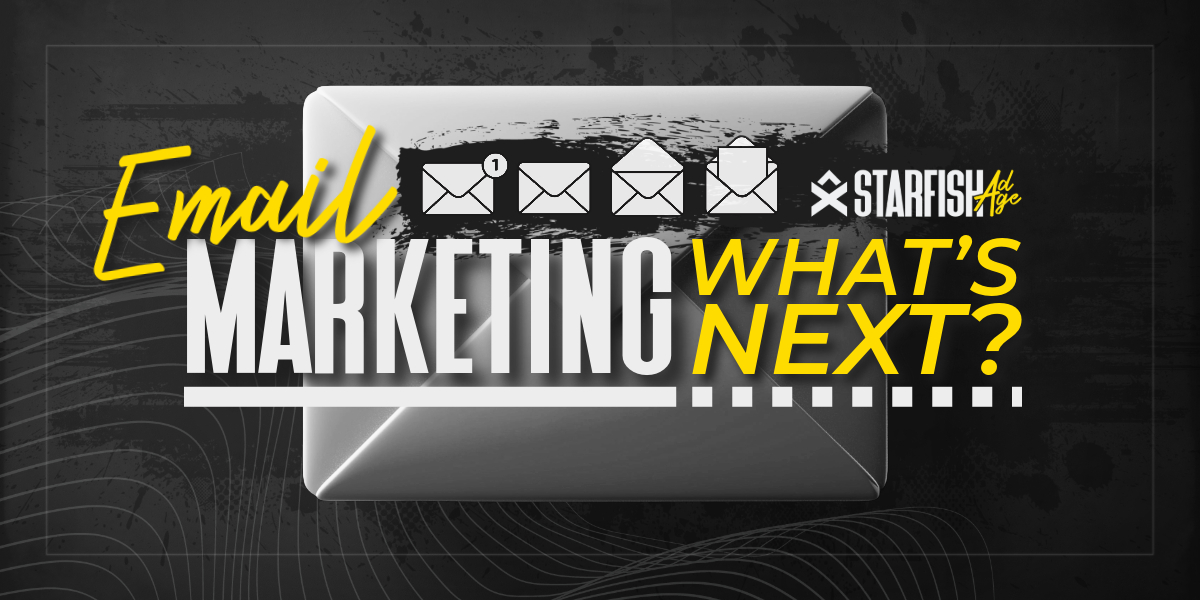
What Is The Future Of Email Marketing
Email marketing has been a powerful tool for businesses for decades. Choosing the right email marketing service can optimize strategies and gauge campaign performance effectively.

Artificial Intelligence (AI) is transforming the landscape for small businesses, offering tools and technologies that can drive growth, streamline operations, and enhance customer engagement. By incorporating AI-powered solutions, small businesses can stay competitive and agile in today’s fast-paced environment.
This blog explores AI-powered strategies that can help small businesses thrive, covering essential areas like marketing, customer support, and operations while guiding how to implement AI tools effectively.
AI can analyze customer data to create highly personalized marketing campaigns, improving customer engagement and conversion rates. AI tools also automate tasks like scheduling social media posts and sending follow-up emails, helping small businesses save time while optimizing their marketing strategies.
AI can automate repetitive tasks, such as data entry and customer support, through AI-powered chatbots, inventory management, bookkeeping, and even sales follow-up. Small businesses can focus on more critical areas, like strategy and growth, by automating these tasks.
AI tools can analyze customer data to reveal insights about behavior, preferences, and purchasing patterns. This analysis allows small businesses to tailor their products, services, and marketing campaigns to meet customer needs more effectively, improving customer satisfaction and loyalty.
Many AI-powered tools are available for small businesses, including chatbots like Drift, marketing automation platforms like StarLeads, and data analytics tools like Google Analytics. These tools are often scalable, making them affordable for small businesses to implement based on their specific needs.
The primary challenges include the cost of initial setup, concerns about data security, and the need for employee training. However, starting small with AI solutions for specific tasks and gradually scaling up can help businesses manage these challenges while realizing the benefits of AI integration.

AI can significantly improve how small businesses interact with their customers. Businesses can offer real-time, 24/7 customer support by using AI-powered tools like chatbots. These tools immediately respond to frequently asked questions and guide customers through personalized experiences, improving customer satisfaction and loyalty.
Beyond basic support, AI can analyze customer behavior and preferences, allowing businesses to tailor their products and services to meet individual needs. This ability to deliver personalized solutions can make a small business stand out in a crowded market, keeping customers engaged and returning for more.
AI can supercharge small businesses’ marketing efforts by making campaigns more targeted and efficient. With AI marketing tools, business owners can analyze customer data to understand their target audience better and create personalized marketing campaigns. These tools allow businesses to segment customers based on behavior, preferences, and interactions, ensuring more relevant messaging.
In addition to helping businesses better understand their customers, AI also automates many aspects of marketing. From scheduling social media posts to optimizing email campaigns, AI frees up time for business owners to focus on strategic growth while driving strong engagement with their marketing efforts.

Implementing AI-powered tools can help small businesses streamline operations and reduce costs. By automating repetitive tasks like data entry, bookkeeping, and scheduling, AI allows business owners and employees to focus on more value-driven activities. This results in better resource management and operational efficiency.
Furthermore, AI tools can help small businesses reduce errors, especially in areas like inventory management, which can be prone to mistakes when handled manually. AI-driven insights and automation can lower operational costs by optimizing stock levels, improving supply chain management, and reducing waste.
AI helps small business owners make better decisions by providing valuable insights into customer behavior and market trends. AI tools can reveal patterns and predict future trends by analyzing historical sales data and consumer preferences. This data-driven approach helps businesses make informed decisions about product offerings, marketing strategies, and customer engagement.
Moreover, AI can help small businesses forecast sales, predict demand, and identify expansion opportunities. By utilizing these AI-generated insights, business owners can stay ahead of the competition and plan strategically for future growth.
One of AI’s most beneficial aspects for small businesses is its ability to automate time-consuming and repetitive tasks. From customer support to inventory management, AI can take over mundane duties, freeing up time for business owners to focus on strategic, high-priority areas of their operations.
By automating tasks like manual data entry, AI saves time and reduces the likelihood of human error. This automation allows businesses to operate more efficiently, carefully prioritizing and handling critical tasks.

AI is a powerful tool for enhancing marketing and sales efforts in small businesses. AI marketing tools can analyze customer data to provide insights into customer behavior, allowing businesses to create highly targeted, personalized campaigns. These campaigns resonate better with consumers, increasing engagement and higher conversion rates.
On the sales side, AI can help automate tasks like lead generation and follow-up emails. By automating these processes, businesses can ensure no missed opportunities while reducing the workload on sales teams. AI tools can also assist with forecasting sales and managing pipelines, ensuring business owners have a clear view of upcoming sales opportunities.
AI-powered chatbots are revolutionizing customer support for small businesses by offering around-the-clock assistance. These chatbots can handle common inquiries, provide product information, and even guide customers through troubleshooting, improving customer satisfaction and retention. Using AI for customer support reduces the need for full-time staff, saving operational costs.
In addition to essential support, AI can analyze customer interactions to identify areas where businesses can improve. This feedback loop allows small businesses to continually refine their customer service approach, ensuring they meet customer expectations and improve customer loyalty.
AI plays a crucial role in improving the efficiency of small businesses’ day-to-day operations. By automating tasks like data entry, bookkeeping, and inventory management, AI reduces the manual workload for employees, allowing them to focus on higher-level tasks that drive growth. For example, AI can optimize supply chain management, ensuring businesses have the right products at the right time and minimizing stockouts and overstock.
Beyond automation, AI tools can provide insights into operational efficiency. By analyzing business data, AI tools can identify bottlenecks and inefficiencies, offering recommendations on improving processes. This ensures small businesses can run leaner, more efficient operations while maintaining a competitive edge.

AI excels at analyzing large sets of customer data, allowing small businesses to gain insights that would otherwise be difficult to uncover. By analyzing customer interactions, purchasing patterns, and feedback, AI tools help businesses understand their customers better. This deep understanding enables businesses to create personalized experiences, tailor their marketing efforts, and improve customer satisfaction.
In addition to providing insights into current customer behavior, AI tools can predict future trends by analyzing historical data. This predictive capability allows small businesses to anticipate customer needs, ensuring they stay one step ahead of their competition.
Customer retention is critical for small business success, and AI can play a key role in keeping customers engaged. AI tools can track customer interactions and identify customers at risk of leaving. Businesses can re-engage customers and prevent churn by providing personalized offers or support at the right time.
Additionally, AI can continuously analyze feedback and customer satisfaction scores to improve the overall customer experience. By addressing concerns before they escalate, AI helps businesses foster long-term relationships with their clients, leading to higher retention rates and increased customer loyalty.
When implementing AI in your small business, starting small and scaling up gradually is best. Begin by identifying tasks AI can improve, such as customer support or marketing. By starting with smaller, manageable projects, you can test the effectiveness of AI without overwhelming your business operations.
As your business grows and becomes more complex, you can implement more sophisticated AI tools to address larger challenges. Focus on using AI to solve specific business problems rather than adopting AI for every area at once. This ensures a smooth and efficient integration process.
Implementing AI is not a one-time event. It’s important to monitor and evaluate your AI solutions’ effectiveness continuously. Businesses can analyze performance data to determine which AI tools deliver the most value and adjust accordingly. Regular evaluation also helps identify areas where AI implementation can be expanded for greater impact.
Business owners should stay open to testing new AI-powered tools as they emerge. The AI landscape is constantly evolving, and by staying informed about the latest trends, small businesses can remain competitive and agile.

AI-powered tools are now widely available and accessible to small businesses. Some top AI tools for small businesses include AI chatbots for customer support, AI-powered marketing automation tools like StarLeads, and AI-driven data analysis platforms like Google Analytics and Tableau. These tools help small businesses enhance efficiency, improve customer engagement, and drive growth.
Other tools like Salesforce and Zendesk can help automate sales processes and customer service tasks, ensuring small businesses can focus on what matters most—growing their business and maintaining strong customer relationships.
One common concern about AI is the fear that it may lead to job displacement. However, AI in small businesses is more about enhancing human efforts than replacing them. By automating repetitive tasks, AI frees employees to focus on more creative and strategic roles that contribute to business growth.
Moreover, AI creates opportunities for employees to develop new skills, particularly in managing and working alongside AI-powered tools. With proper training and support, AI can be a tool that empowers employees rather than one that diminishes job opportunities.

As AI tools rely on customer data to provide insights, ensuring data security is critical. Small businesses must adopt best practices when handling customer data, such as encryption and following data protection regulations like GDPR. This helps build trust with customers, who know their data is secure and used responsibly.
Starting with clear goals is essential when implementing AI in your small business. Identify specific business challenges that AI can solve and develop a strategy for implementation. By aligning AI adoption with your business objectives, you ensure that AI enhances your operations rather than becoming a distraction.
Additionally, continuous monitoring and refinement are key. As AI technology evolves, businesses must stay current with the latest tools and trends to remain competitive. Small businesses can stay ahead in an increasingly AI-driven marketplace by remaining flexible and open to new AI opportunities.

Email marketing has been a powerful tool for businesses for decades. Choosing the right email marketing service can optimize strategies and gauge campaign performance effectively.

Discover successful email marketing strategies to boost engagement, drive conversions, and grow your business with impactful campaigns.

Discover the basics of marketing automation and how it helps businesses save time, streamline campaigns, and boost results.

Discover the importance of lead generation for boosting business growth, building connections, and driving long-term success.

Explore the differences between traditional and digital advertising. Learn which strategy is best for your business, from broad reach to targeted campaigns.
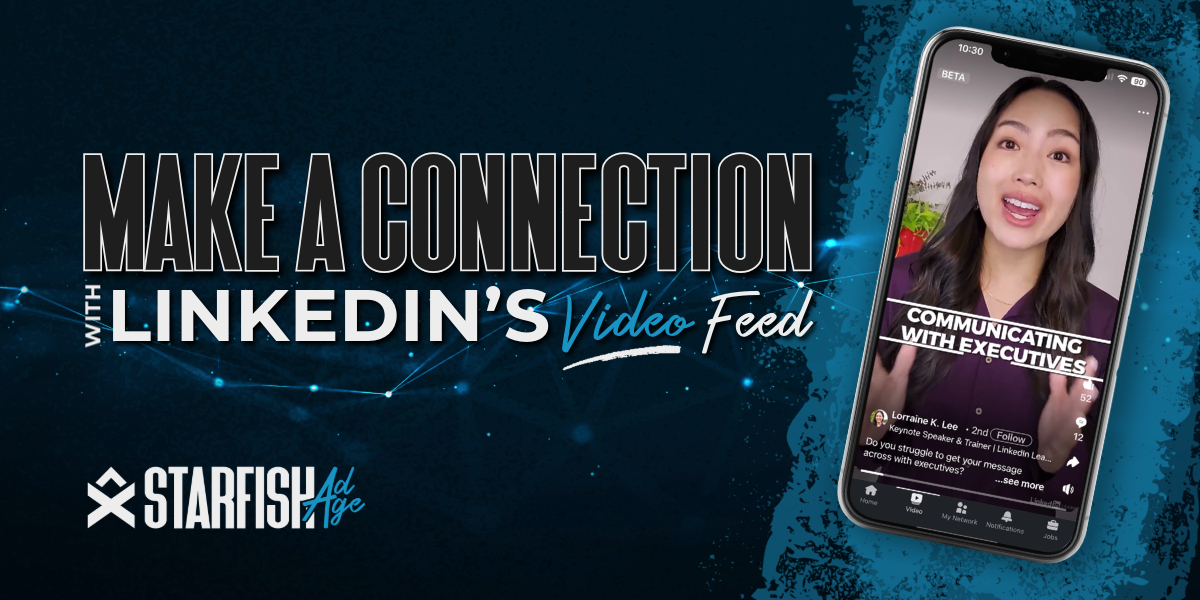
Use LinkedIn’s new video feed to grow your audience. Learn specs, best practices, and tips for creating engaging posts to boost your visibility on LinkedIn.

How major social media legal battles in 2024, including Supreme Court rulings and the Kids Online Safety Act, are impacting businesses and digital marketing.

Discover 10 iconic brands like Blockbuster, Kodak, and Toys “R” Us that went extinct because they failed to innovate.

Gen Z Marketing That’s Breaking The Internet: Discover how Gen Z marketers use bold, unpredictable strategies to capture attention.
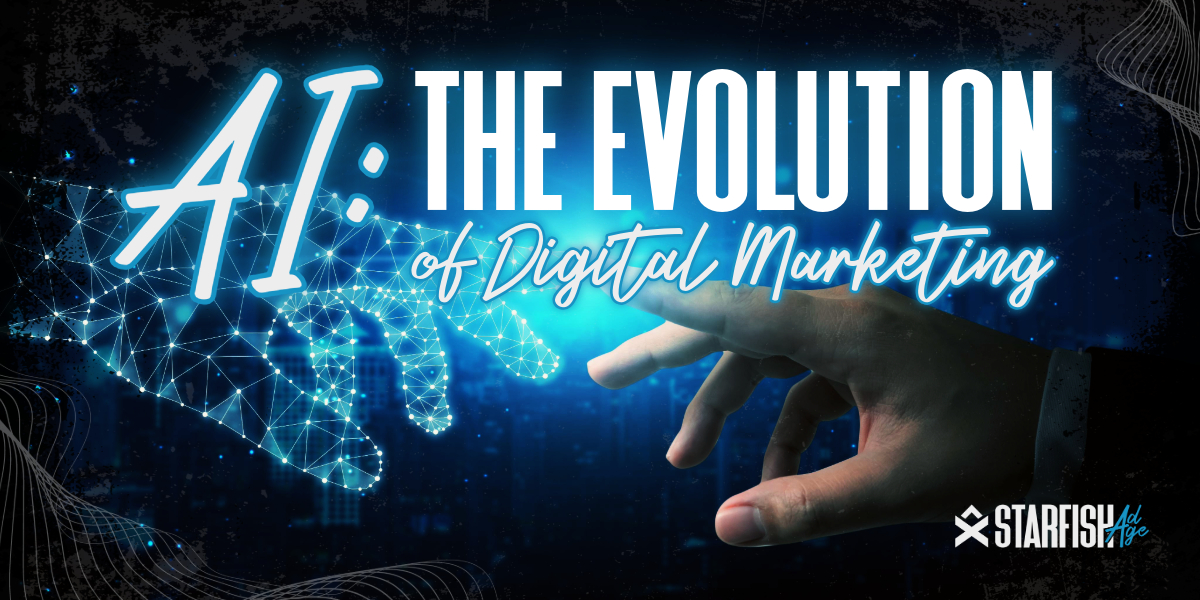
Discover how AI transforms digital marketing through automation, personalized strategies, and data-driven insights.
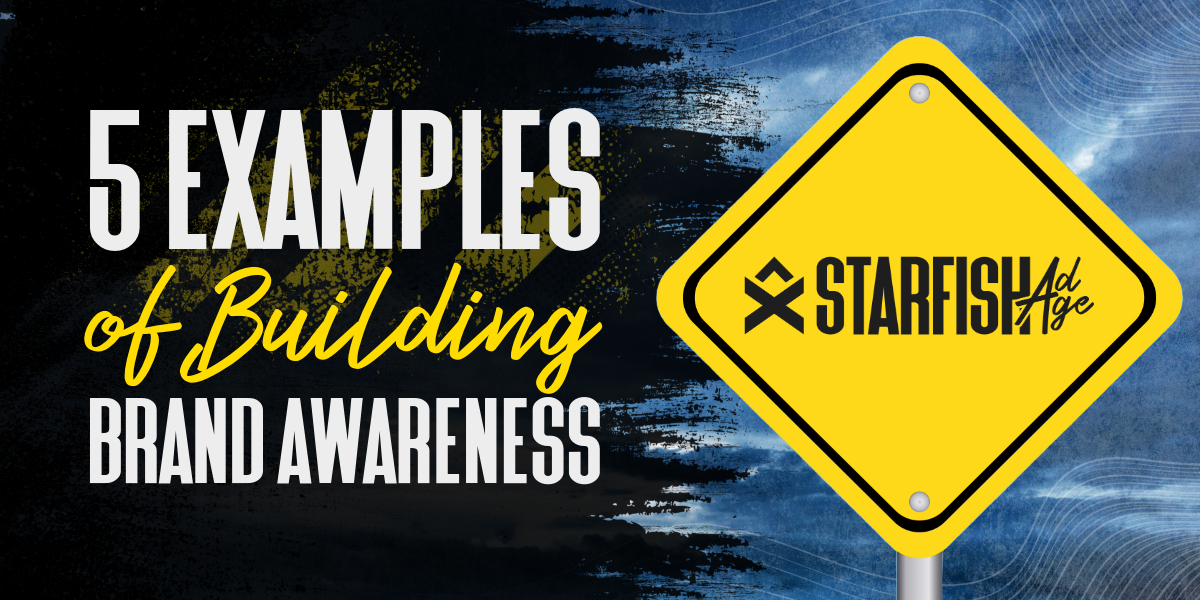
Discover five powerful strategies for building brand awareness, from partnerships and influencer marketing to social media and SEO.

Get the latest insights on Google’s ad tech monopoly trial and how it could reshape digital advertising, competition, and your ad strategies moving forward.

Follow TikTok’s legal battle against the ban and learn how it could affect creators. Get the facts and understand the potential future of the platform.

A few of the most significant marketing mistakes we’ve seen in 2024 so far, why they happen, and simple ways to avoid them to keep your campaigns on track.
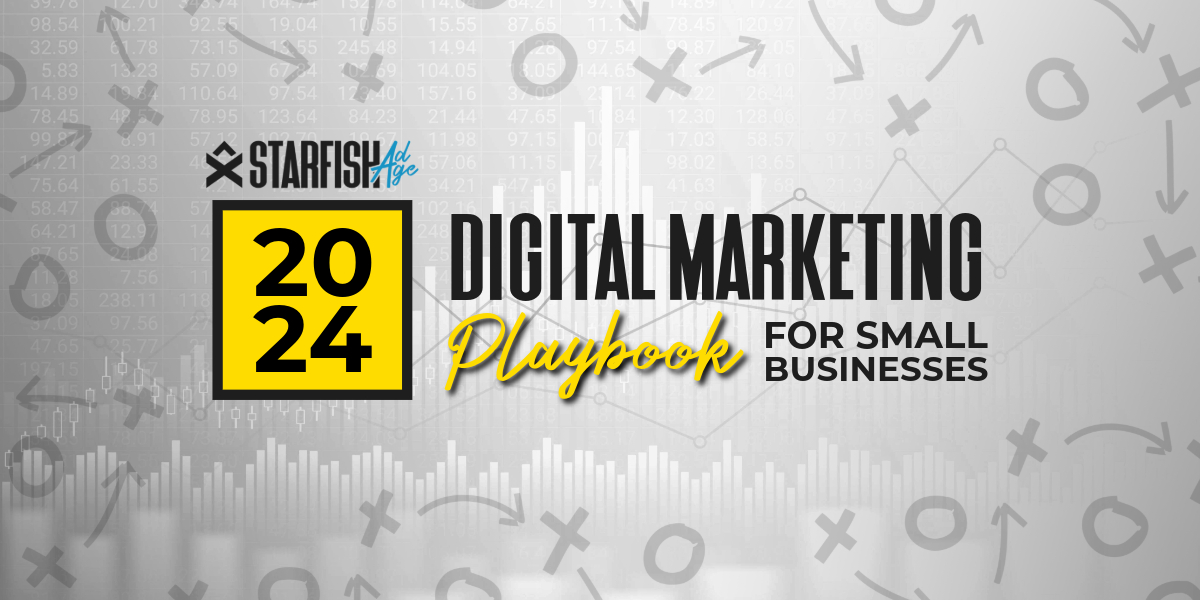
Explore key strategies in our 2024 Digital Marketing Guide. Learn to understand your audience, build an online presence, and optimize for business growth.
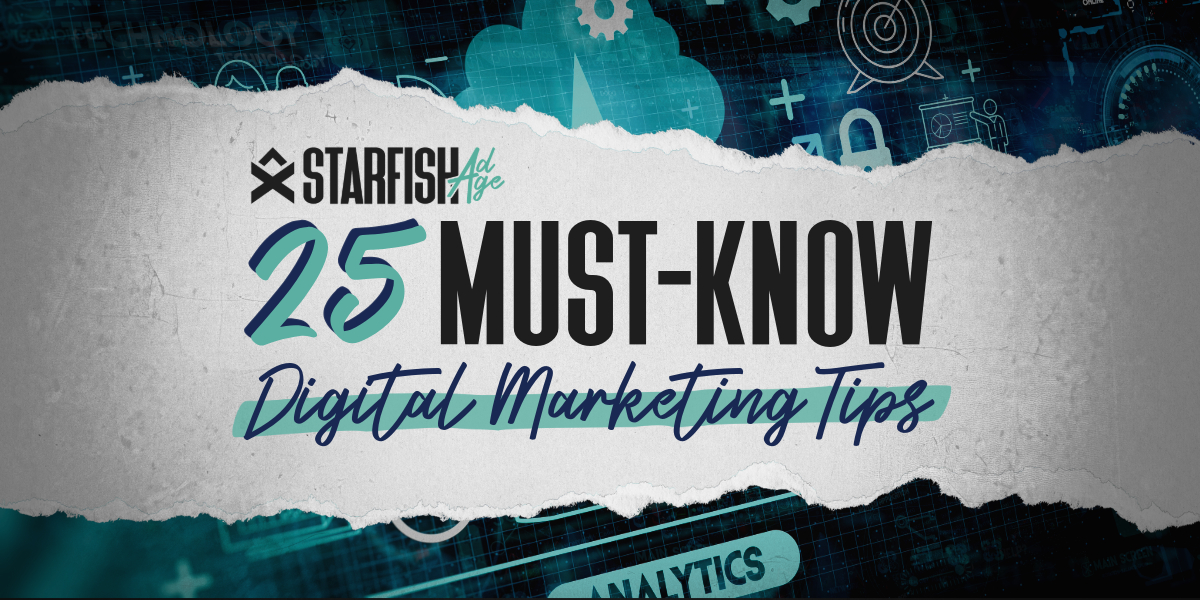
Discover 25 essential digital marketing tips for small businesses. Boost your online presence, attract customers, and drive sales with proven strategies.

14 Essential Digital Marketing Solutions to Boost Your Business Growth
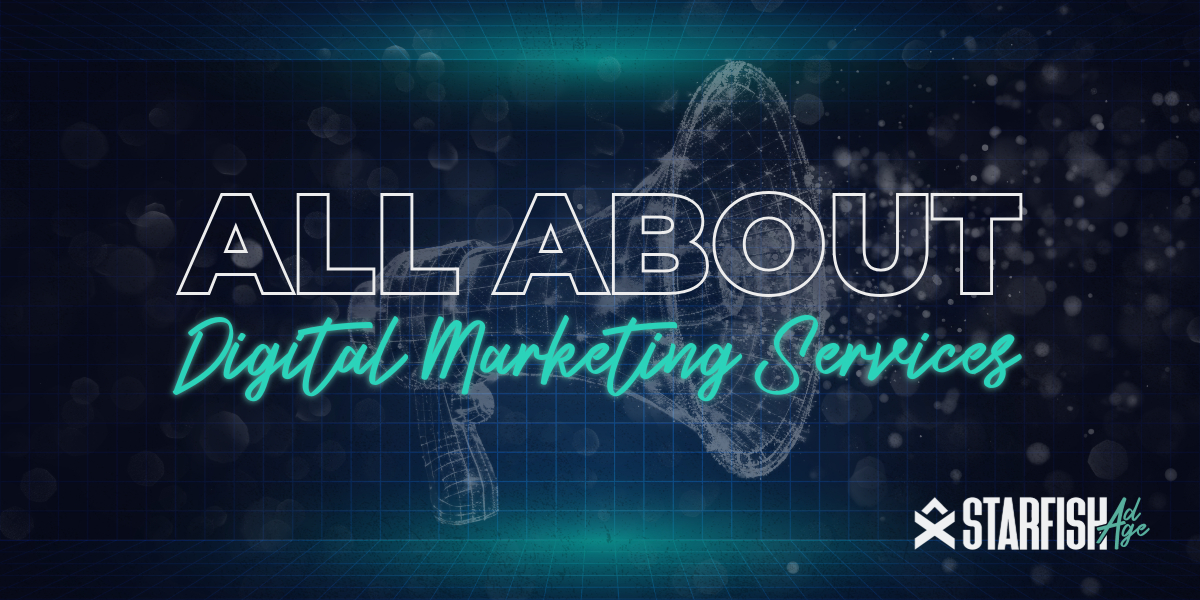
Learn about SEO, PPC, social media marketing, content marketing, and more to drive traffic and conversions. Read now!
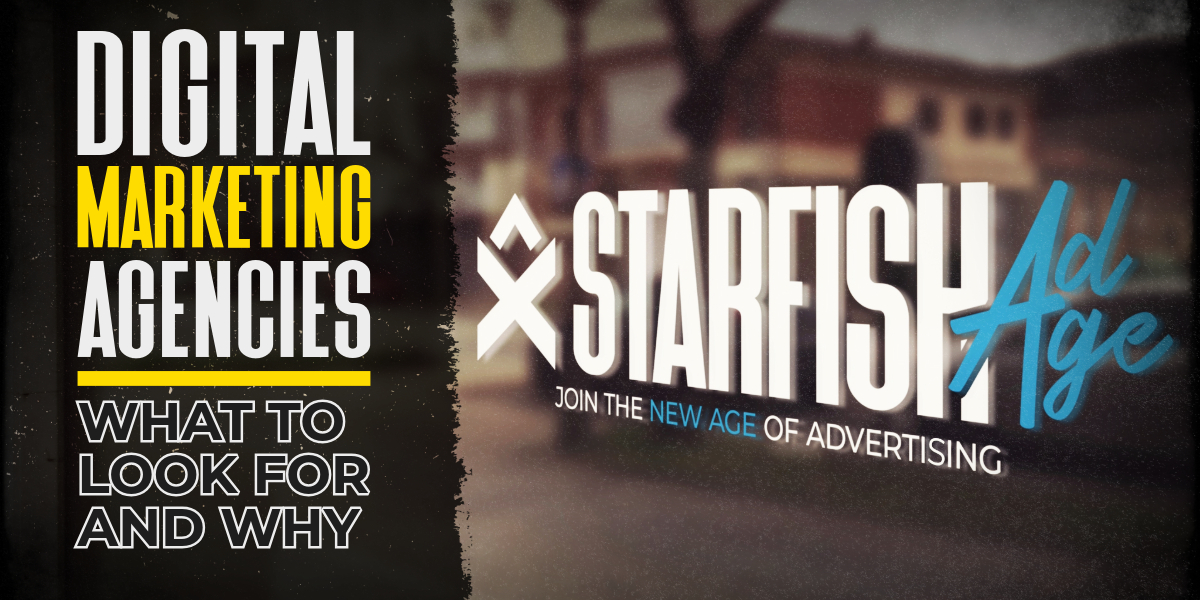
Learn how to select the best digital marketing agency for your small business, the benefits of hiring an agency, and tips for maximizing your online presence.
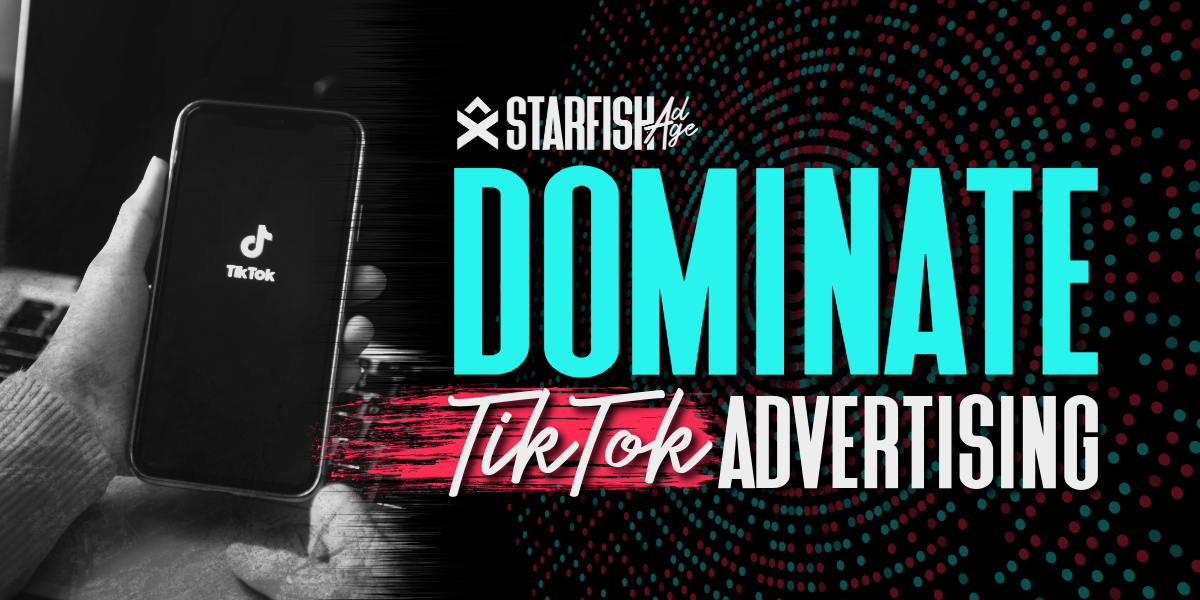
Learn how to leverage TikTok advertising, ad formats, targeting options, and best practices to increase brand awareness, and drive sales.
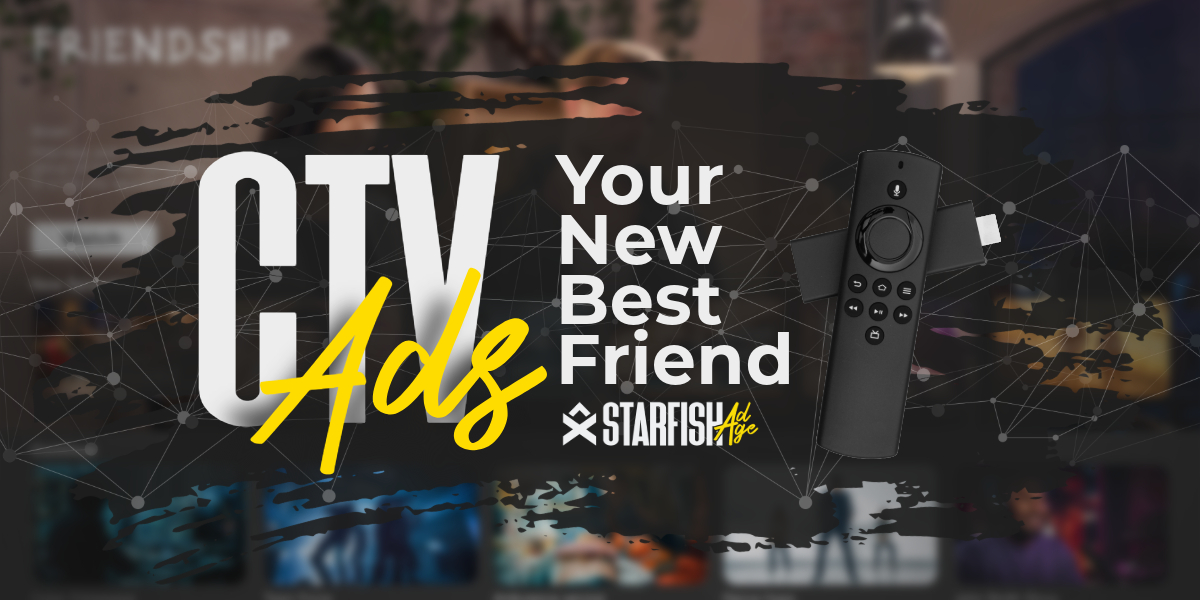
Learn about Connected TV (CTV) ads, their benefits, and how they work. Understand programmatic CTV advertising for effective digital marketing campaigns.
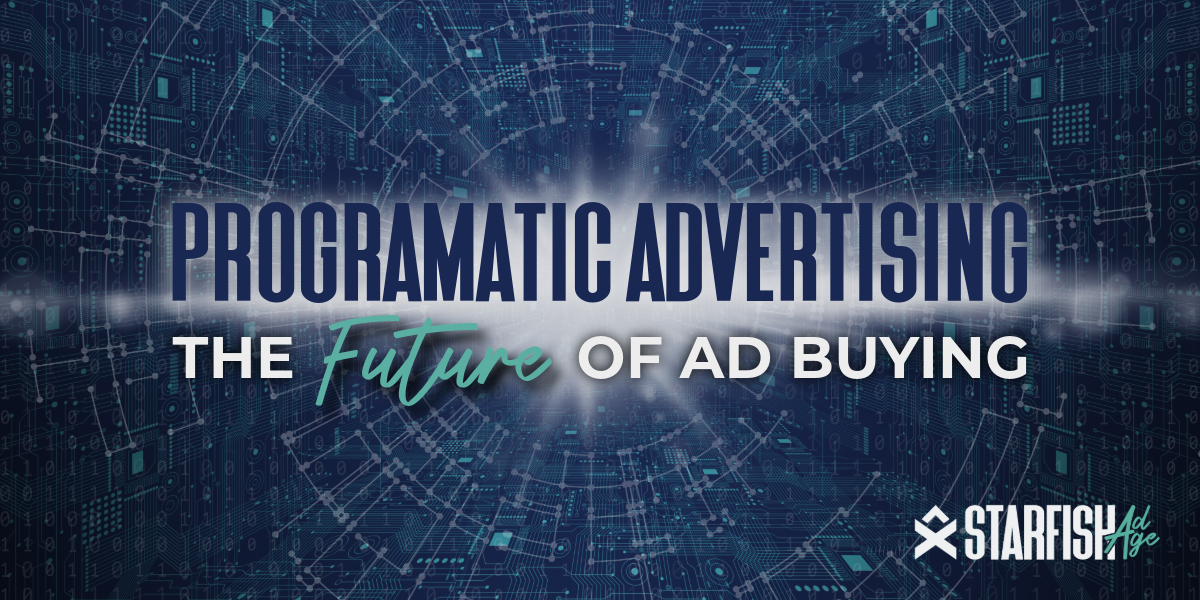
Discover the benefits of programmatic advertising, an automated method of buying digital ad space that enhances targeting, efficiency, and campaign performance.
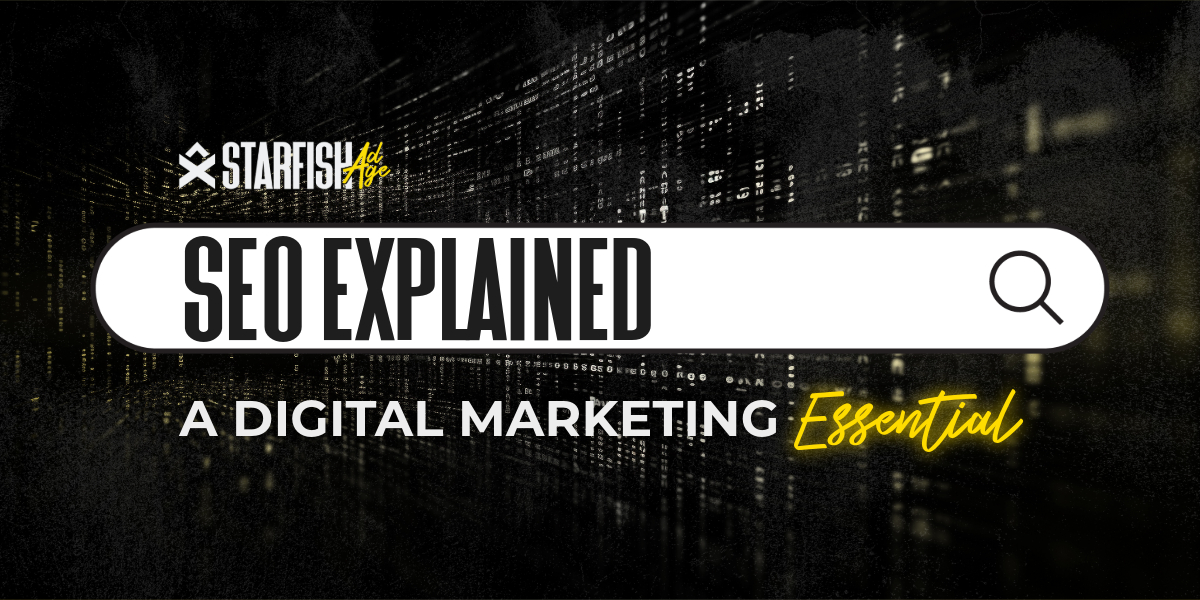
Discover what SEO in digital marketing is and why it matters. Learn how search engine optimization can increase your business’s success.

Learn how to advertise on Google effectively. The basics of Google Ads, from setting up your account to targeting your audience and driving qualified traffic.
All Rights Reserved | Starfish Ad Age LLC | 2023 | Privacy Policy